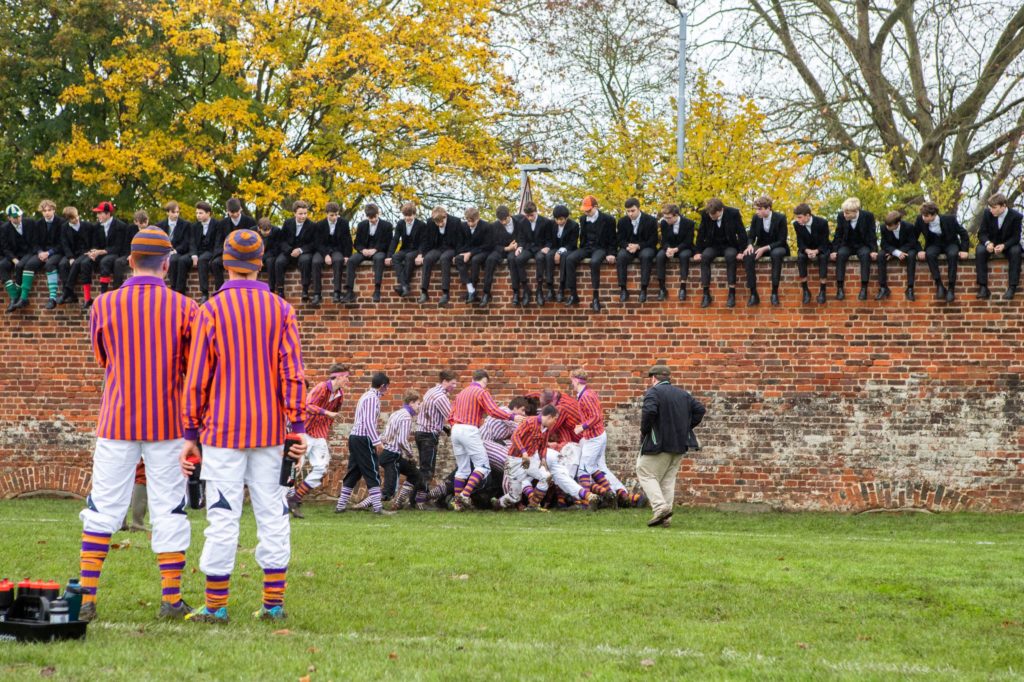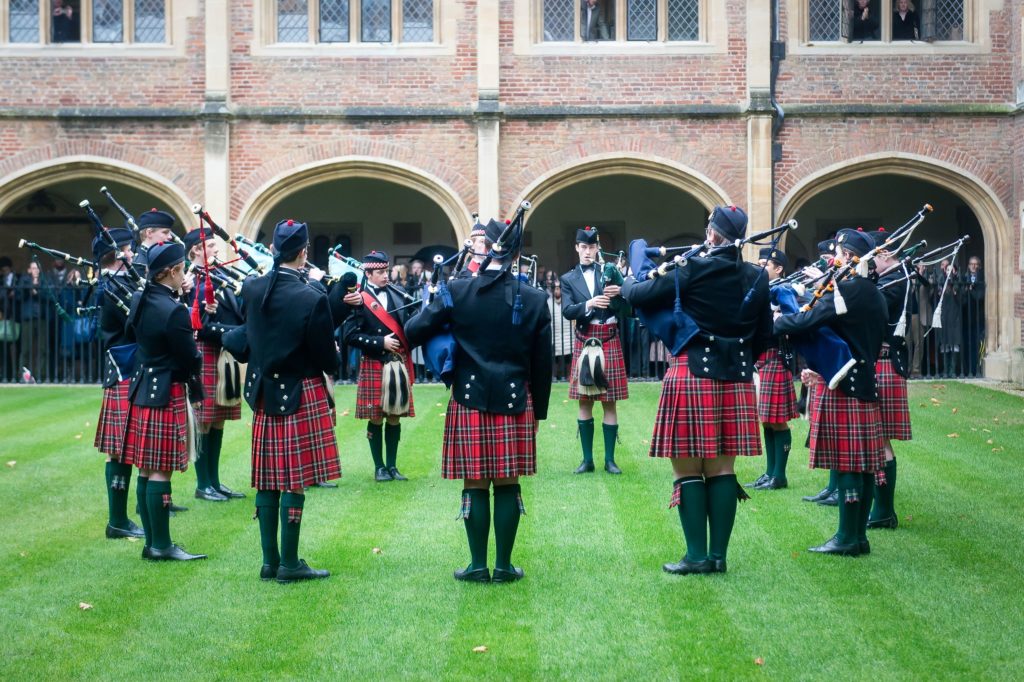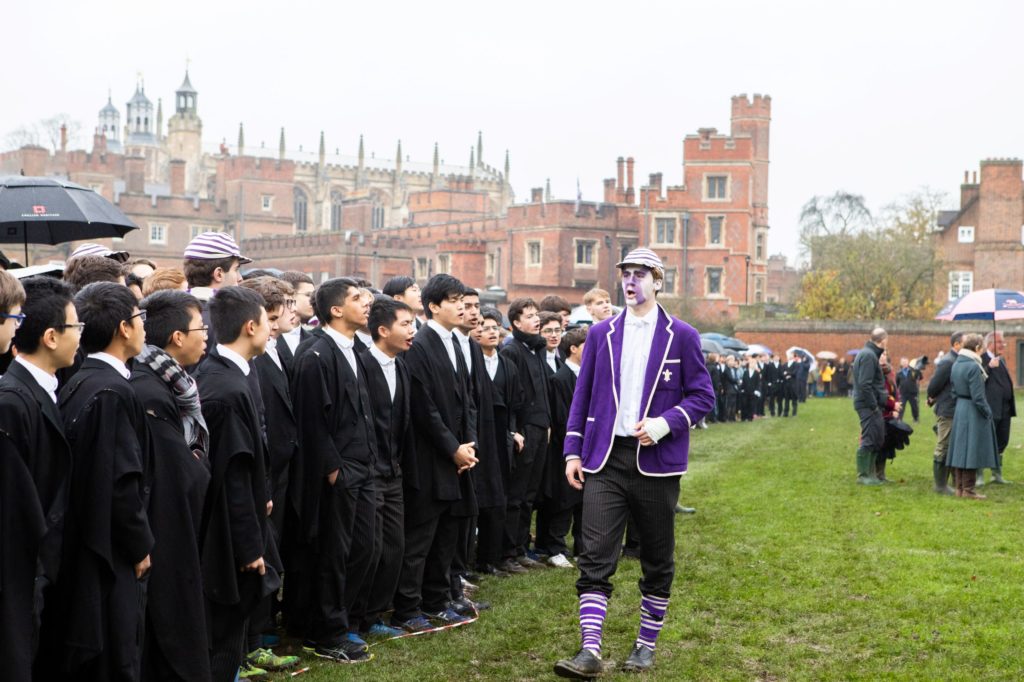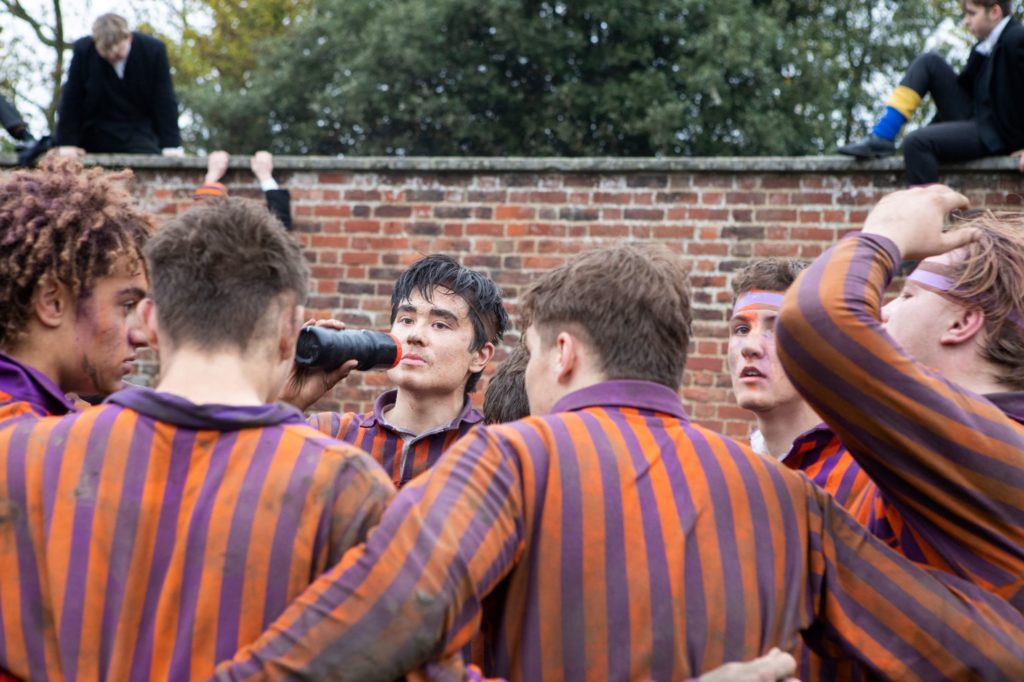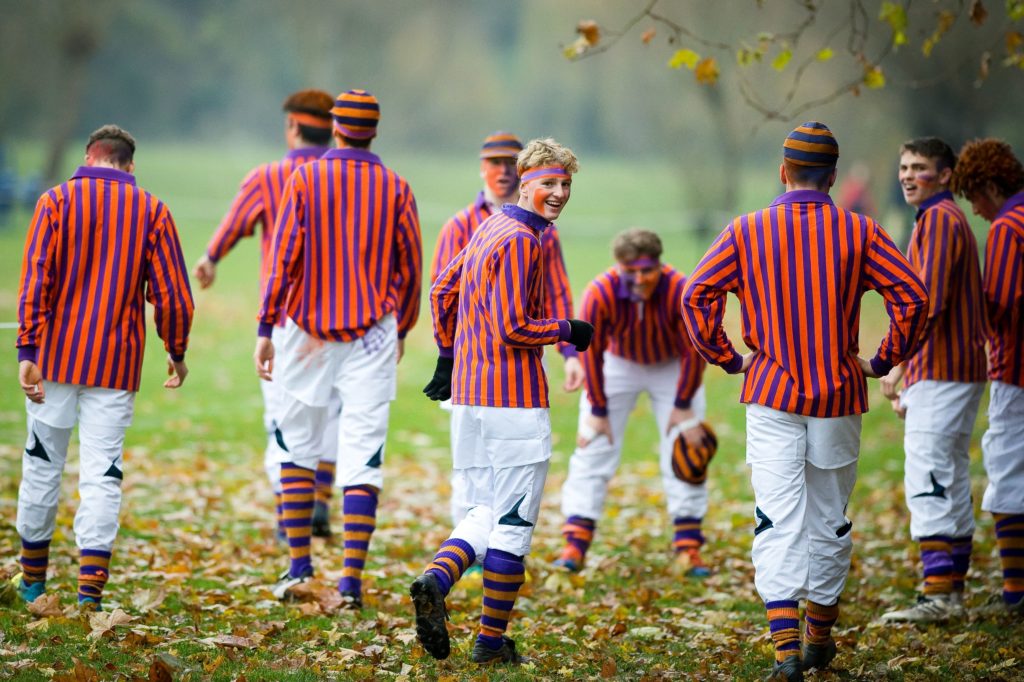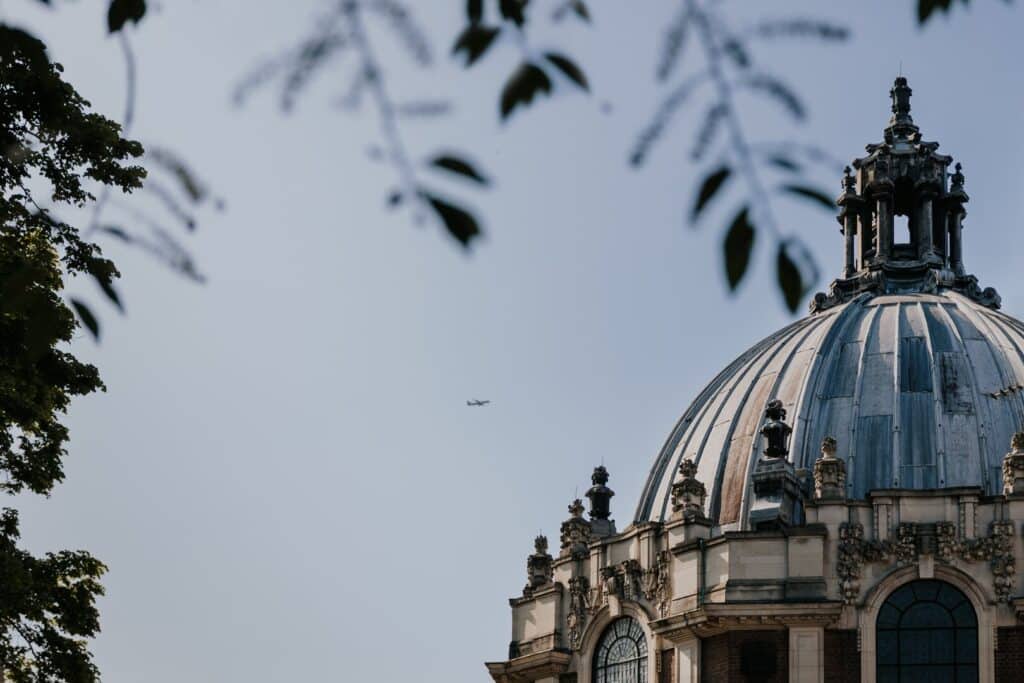
The origin of St Andrew’s Day is somewhat unclear, but the celebration can be dated to at least 1841 when the Wall Game, a sport whose rules are shrouded in mystery and known only to an elite few, first took place. In the following year it is believed that a ‘goal’ was scored, a rare event in the game played between College and the Oppidans, a team made up of students from the College’s 24 other boarding houses. The last goal to be scored in a St Andrew’s Day Wall Game was 1909, when former Prime Minister Harold MacMillan was a member of the College team.
The annual College vs. Oppidans Wall Game match has continued to this day and is now complemented with regular concerts, exhibitions, matches and demonstrations across the school. The genesis of the religious significance of St Andrew’s Day is unclear, but the Scottish aspect of the day is also observed, with boys of Scottish descent allowed to wear kilts and play the bagpipes.
Here’s tae us. Wha’s like us? Damn few, and they’re a’deid.
Traditional Scottish toast
Whilst this year the traditions of St Andrew’s Day were challenging to observe in person, students and staff proved their ingenuity in organising such a diverse and interesting virtual celebration given the constraints.
Mr Nolan hosted a podcast in which he discussed the origins of this day, interviewed the Provost, and spoke to an Old Etonian who had circumnavigated Great Britain. The Great Court Run, made famous in the scene from ‘Chariots of Fire’ (set in Trinity College, Cambridge but filmed in Eton’s School Yard) was re-enacted by two of Eton’s premier athletes, without of course the champagne and cigarettes present in the film!
Lady Waldegrave introduced the ‘perfect mince pie’ competition, College Collections and the Music Department hosted a virtual exhibition and jazz concert respectively, and the Centre for Innovation and Research in Learning (CIRL) published its latest academic journal, exploring the impact of school closures upon wellbeing and mental health.
You can find our more about CIRL’s work here – https://cirl.etoncollege.com/
Congratulations to all involved in making this St Andrew’s Day a particularly memorable one, and we look forward to celebrating in person in 2021.

